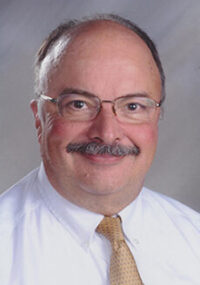Jesus continually comes into the world

By Tim Irwin
Fifth Sunday of Lent/March 29
Ezekiel 37:12-14; Psalm 130:1-2,3-4,5-6,7-8; Romans 8:8-11; John 11:1-45
The apostolic age refers to the formative years of the Catholic faith when the Church, under the guidance of the Holy Spirit, settled the contents of Scripture and tradition. The delay of the second coming of Christ greatly influenced this process. This week’s Gospel offers the evangelist John’s view on the delay, but first, a quick explanation of how the other evangelists handled it.
The Gospel according to Mark presents the earliest view of the second coming — it will be soon. In a sense this is true because each of us is as close to Jesus as we are to death. Matthew and Luke postpone the event into the future. For Matthew it’s the end of the age and for Luke when the Christian witnesses reach the ends of the earth. In a sense this is also true. We expect that some of our fellow Catholics will survive us. The Holy Faith will continue in them.
John presents a sacramental perspective on the coming of Christ and it’s in the dialogue between Jesus and Lazarus’s sister Martha, the subject of this week’s Gospel, that John offers his insight.
AN ONGOING EVENT
John writes, “When Jesus arrived, he found that Lazarus had already been in the tomb for four days. Now Bethany was near Jerusalem, only about two miles away. And many of the Jews had come to Martha and Mary to comfort them about their brother.”
Martha goes out to meet Jesus. She says to him, “Lord, if you had been here, my brother would not have died. But even now I know that whatever you ask of God, God will give you.” Jesus answers, “Your brother will rise.” Martha responds with the prevailing view, “I know he will rise, in the resurrection on the last day.”
Here’s where it gets really interesting. Jesus cues Martha and by extension everybody else holding this view to a more nuanced understanding of his coming. Jesus proclaims, “I am the resurrection and the life; whoever believes in me, even if he dies, will live, and everyone who lives and believes in me will never die. Do you believe this?”
Martha caught on immediately. Her response explains what St. John the Evangelist wants us to realize. Martha says, “Yes, Lord. I have come to believe that you are the Christ, the Son of God, the one who is coming into the world.”
She didn’t say “has come” or “will come.” Martha says, “is coming.” You may recall from high school English that this is an example of the present progressive tense. It indicates an ongoing action. Jesus coming into the world is an ongoing event.
TRUE FOOD, DRINK
Don’t think that St. John is denying the second coming as the grand finale of salvation history, he’s not. What he asserts in his Gospel, Chapter 6 being the best place to see it, is that we should focus on being in communion with Christ who is continually coming into the world in the Holy Eucharist. In John 6 Jesus says, “Whoever eats my flesh and drinks my blood has eternal life, and I will raise him on the last day. For my flesh is true food, and my blood is true drink. Whoever eats my flesh and drinks my blood remains in me and I in him.”
We don’t have to wait for history’s grand finale. We are invited to be in communion with Jesus under the appearance of bread and wine today.
Jesus was born into the world and will return at the close of human history. In the meantime, He is continually coming to us in the celebration of the Holy Mass. Martha nailed it.
—
Tim Irwin teaches theology and philosophy at Notre Dame High School in Peoria. He is a member of Blessed Sacrament Parish in Morton.





